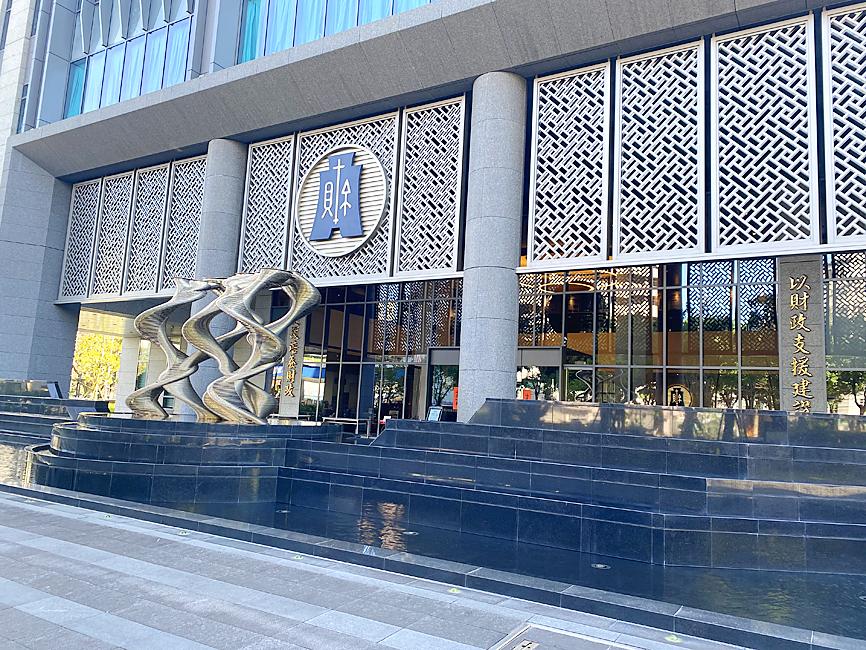The government last month collected NT$202.7 billion (US$6.97 billion) in tax revenue, up NT$1.8 billion, or 0.9 percent, from a year earlier, Ministry of Finance data showed yesterday.
The biggest increase was in business tax revenue, which rose by NT$5.4 billion, or 6.2 percent, to NT$92.6 billion, thanks to rising tax income from imported electronic components, information technology and audio-video products, as well as base metal and related finished products, the ministry said in a statement.
Other major increases in tax revenue last month came from corporate income tax, which increased by NT$2.3 billion, or 61 percent, to NT$6.1 billion, and in land value increment tax, which climbed by NT$1 billion, or 9.8 percent, to NT$10.7 9 billion, the ministry said.

Photo: Clare Cheng, Taipei Times
However, personal income tax revenue decreased by NT$5 billion, or 16 percent, from a year earlier due to differences in the time of withholding tax on year-end bonuses.
Commodity tax revenue also declined by NT$2 billion, or 13.9 percent, from the previous year, as the government lowered imported duties on fuel products to curb inflation, the ministry said.
In the first three months of the year, cumulative tax revenue rose by NT$15.5 billion, or 3.3 percent, to a record NT$482.7 billion compared with the same period last year, ministry data showed.
The January-to-March figure accounted for only 17.7 percent of the government’s target for the full year, as increases in revenues from individual income, corporate income and business taxes were offset by decreases in revenues from commodity and securities transaction taxes, the ministry said.
Individual income tax revenue increased by NT$13.6 billion, corporate income tax revenue grew by NT$7.9 billion and business tax revenue rose by NT$5.3 billion in the first three months, while commodity tax revenue declined by NT$7.7 billion over the same period, ministry data showed.
Tax revenue from securities transactions in the first three months fell by NT$5.7 billion, or 10.2 percent, to NT$50.2 billion, as the daily trading turnover on the local bourse averaged NT$363 billion, down from NT$400.7 billion a year earlier, ministry data showed.

NEW IDENTITY: Known for its software, India has expanded into hardware, with its semiconductor industry growing from US$38bn in 2023 to US$45bn to US$50bn India on Saturday inaugurated its first semiconductor assembly and test facility, a milestone in the government’s push to reduce dependence on foreign chipmakers and stake a claim in a sector dominated by China. Indian Prime Minister Narendra Modi opened US firm Micron Technology Inc’s semiconductor assembly, test and packaging unit in his home state of Gujarat, hailing the “dawn of a new era” for India’s technology ambitions. “When young Indians look back in the future, they will see this decade as the turning point in our tech future,” Modi told the event, which was broadcast on his YouTube channel. The plant would convert

‘SEISMIC SHIFT’: The researcher forecast there would be about 1.1 billion mobile shipments this year, down from 1.26 billion the prior year and erasing years of gains The global smartphone market is expected to contract 12.9 percent this year due to the unprecedented memorychip shortage, marking “a crisis like no other,” researcher International Data Corp (IDC) said. The new forecast, a dramatic revision down from earlier estimates, gives the latest accounting of the ongoing memory crunch that is affecting every corner of the electronics industry. The demand for advanced memory to power artificial intelligence (AI) tasks has drained global supply until well into next year and jeopardizes the business model of many smartphone makers. IDC forecast about 1.1 billion mobile shipments this year, down from 1.26 billion the prior

People stand in a Pokemon store in Tokyo on Thursday. One of the world highest-grossing franchises is celebrated its 30th anniversary yesterday.

Zimbabwe’s ban on raw lithium exports is forcing Chinese miners to rethink their strategy, speeding up plans to process the metal locally instead of shipping it to China’s vast rechargeable battery industry. The country is Africa’s largest lithium producer and has one of the world’s largest reserves, according to the US Geological Survey (USGS). Zimbabwe already banned the export of lithium ore in 2022 and last year announced it would halt exports of lithium concentrates from January next year. However, on Wednesday it imposed the ban with immediate effect, leaving unclear what the lithium mining sector would do in the